Kanehsatake: 270 Years of Resistance est un film canadien de genre Documentaire réalisé par Wolf Koenig
Kanehsatake: 270 Years of Resistance (1993)
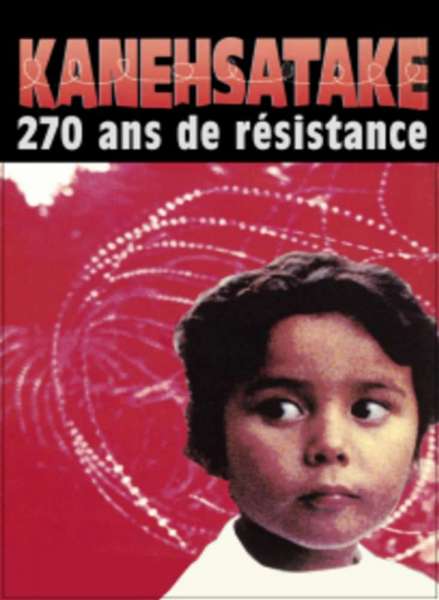
Si vous aimez ce film, faites-le savoir !
Durée 1h59
Réalisé par Wolf Koenig
OrigineCanada
Genres Documentaire
Themes Documentaire sur le droit, Documentaire sur une personnalité, Documentaire sur la politique, Politique, Documentaire sur la politique du Québec
Note78%










Kanehsatake: 270 Years of Resistance is a 1993 feature-length film documentary film by Alanis Obomsawin, chronicling the 1990 Oka Crisis.
Produced by the National Film Board of Canada, the film won 18 Canadian and international awards, including the Distinguished Documentary Achievement Award from the International Documentary Association and the CITY TV Award for Best Canadian Feature Film from the Toronto Festival of Festivals.
Commentaires
Postez un commentaire :
Suggestions de films similaires à Kanehsatake: 270 Years of Resistance
Il y a 2 films avec le même réalisateur, 8863 ayant les mêmes genres cinématographiques, 9996 films qui ont les mêmes thèmes (dont 2 films qui ont les mêmes 5 thèmes que Kanehsatake: 270 Years of Resistance), pour avoir au final 70 suggestions de films similaires.Si vous avez aimé Kanehsatake: 270 Years of Resistance, vous aimerez sûrement les films similaires suivants :
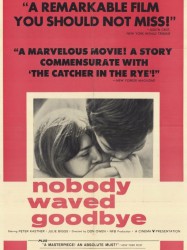
Lonely Boy (1962)
, 27minutesRéalisé par Roman Kroitor, Wolf Koenig
Origine Canada
Genres Documentaire
Thèmes La musique, Documentaire sur la musique, Documentaire sur une personnalité, Musique
Acteurs Paul Anka
Note71%





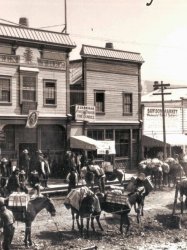
Capitale de l'or (1957)
, 21minutesRéalisé par Wolf Koenig, Colin Low
Origine Canada
Genres Documentaire, Historique
Thèmes Documentaire historique, Documentaire sur les villes
Note70%






Je me souviens (2002)
, 47minutesOrigine Canada
Genres Documentaire
Thèmes Le racisme, Documentaire sur la discrimination, Documentaire sur le droit, Documentaire sur une personnalité, Documentaire sur la politique, Politique, Documentaire sur la politique du Québec
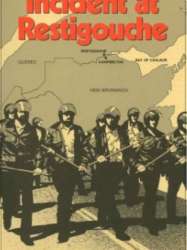
Genres Documentaire
Thèmes Documentaire sur le droit, Documentaire sur une personnalité, Documentaire sur la politique, Politique, Documentaire sur la politique du Québec
Note69%





Documentaire d'Alanis Obomsawin sur un événement de brutalité policière survenu à Restigouche. Juin 1981 : une affaire de règlements de pêche au saumon met le feu aux poudres. 550 policiers provinciaux envahissent une réserve micmac où vivent 150 Amérindiens et leurs familles. La réalisatrice souligne qu'il s'agit en fait d'une affaire de souveraineté territoriale, et rappelle au ministre Lucien Lessard que l'histoire du Québec ne s'arrête pas au fait français.

Turkish Passport (2011)
, 1h31Genres Drame, Documentaire, Historique
Thèmes Le racisme, Religion, Documentaire sur la discrimination, Documentaire sur le droit, Documentaire sur la guerre, Documentaire historique, Documentaire sur une personnalité, Documentaire sur la politique, Documentaire sur la religion, Politique, Religion juive, Documentaire sur la Seconde Guerre mondiale
Note78%





Turkish Passport tells the story of diplomats posted to Turkish embassies and consulates in several European countries, who saved numerous Jews during the Second World War. Whether they pulled them out of Nazi concentration camps or took them off the trains that were taking them to the camps, the diplomats, in the end, ensured that the Jews who were Turkish citizens could return to Turkey and thus be saved. Based on the testimonies of witnesses who traveled to Istanbul to find safety, Turkish Passport also uses written historical documents and archive footage to tell this story of rescue and bring to light the events of the time. The diplomats saved not only the lives of Turkish Jews, but also rescued foreign Jews condemned to a certain death by giving them Turkish passports. In this dark period of history, their actions lit the candle of hope and allowed these people to travel to Turkey, where they found light. Through interviews conducted with surviving Jews who had boarded the trains traveling from France to Turkey, and talks with the diplomats and their families who saved their lives, the film demonstrates that "as long as good people are ready to act, evil cannot overcome".
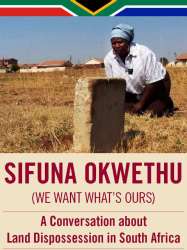
Sifuna Okwethu (2011)
Origine Etats-Unis
Genres Documentaire
Thèmes Afrique post-coloniale, Le racisme, Documentaire sur la discrimination, Documentaire sur le droit, Documentaire sur une personnalité, Documentaire sur la politique, Politique
The film tells the story of both sides claiming the same land as their own. The Ndolilas family’s land was taken by the apartheid government in the 1970s without compensation, and ever since then they have been on a quest to get it back. Standing in their way are working class black homeowners who purchased portions of the Ndolila's land during apartheid. For the homeowners, the land and houses they have legally purchased are a reward for their hard work and the fulfillment of their hopes and dreams for a better life in the new democracy. For the Ndolilas, the land is part of their family legacy and hence deeply intertwined with their identity. Both sides have a legitimate right to the land, and the film encourages viewers to think about whose rights should prevail.

500 Dunam on the Moon (2002)
Origine Etats-Unis
Genres Documentaire
Thèmes Afrique post-coloniale, Religion, Documentaire sur le droit, Documentaire sur la guerre, Documentaire historique, Documentaire sur une personnalité, Documentaire sur la politique, Documentaire sur la religion, Politique, Religion juive
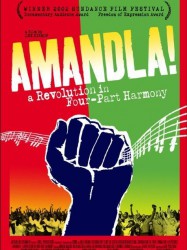
Genres Documentaire
Thèmes Afrique post-coloniale, La musique, Le racisme, Documentaire sur la discrimination, Documentaire sur le droit, Documentaire sur la musique, Documentaire sur une personnalité, Documentaire sur la politique, Musique, Politique
Acteurs Walter Cronkite, Hugh Masekela, Miriam Makeba
Note73%





In the film, South African musicians, playwrights, poets and activists recall the struggle against apartheid from the 1940s to the 1990s that stripped black citizens of South Africa of basic human rights, and the important role that music played in that struggle. The documentary uses a mixture of interviews, musical performances and historical film footage. Among the South Africans who take part are Miriam Makeba, Abdullah Ibrahim, Hugh Masekela, Vusi Mahlasela and others.

The Law in These Parts (2011)
, 1h40Origine Israel
Genres Documentaire, Historique
Thèmes Afrique post-coloniale, Religion, Documentaire sur le droit, Documentaire sur la guerre, Documentaire historique, Documentaire sur une personnalité, Documentaire sur la politique, Documentaire sur la religion, Politique, Religion juive
Note73%





Le film traite du système judiciaire opéré par les forces armées israéliennes en Cisjordanie.
 , 1h27
, 1h27Genres Guerre, Documentaire
Thèmes Le racisme, Religion, Documentaire sur la discrimination, Documentaire sur le droit, Documentaire sur la guerre, Documentaire historique, Documentaire sur une personnalité, Documentaire sur la politique, Documentaire sur la religion, Politique, Religion juive, Documentaire sur la Seconde Guerre mondiale
Note72%





 Connexion
Connexion